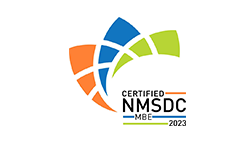Is your site ready for Corporate SEO? You don’t have to be a Fortune 100 corporation for Corporate SEO to benefit your website, even if it is the strategy behind the search engine domination of some of the biggest businesses on the internet. What is Corporate SEO, and how can it help your business?
The first thing to understand is that the name “Corporate SEO” can be misleading. It’s not just for the world’s biggest corporations! Another term that means the same thing is “Enterprise SEO,” or even “Large-Scale SEO.”
Using the words “Enterprise” and “Large-Scale” helps to illustrate what Corporate SEO is and how it differs from traditional SEO strategies aimed at single pages or small websites. That’s why you should work with an experienced Corporate SEO agency to optimize your website. Corporate SEO is about conducting SEO at the scale of an enterprise-sized website. It focuses both on your overall brand visibility and reputation as well as the individual ranking of hundreds or thousands of individual pages.
Below, I explain what Corporate SEO is, how the practice of Corporate SEO evolved, and what some of the key tactics are.
Corporate SEO Explained
Corporate SEO, also known as Enterprise SEO, is the practice of managing search engine optimization on a large, complex website to improve and maintain visibility in search engine results pages (SERPs).
Corporate SEO services address the challenges of managing SEO across hundreds or thousands of pages. Each one of those pages represents a unique landing for organic traffic, but they can’t all be optimized by hand. Enterprise SEO uses tools for at-scale keyword research and automation as well as for performance tracking and reporting.
Traditional SEO is a powerful tool that can deliver major results that dominate search engines. However, as the site of a successful business grows, sometimes the number of individual pages and the rate of page growth outstrips the ability to individually optimize each page. Large site reach a point where they contain so many different pages and terms that setting strategy and measuring results requires a different approach and different tools.
That’s where Corporate SEO begins.
That challenge is not just for major, publicly-traded companies. Any business can have a corporate-sized website full of hundreds or thousands of pages of highly-specialized services. However, Corporate SEO is specifically adapted to large businesses because it also takes into account the challenges of coordinating the compliance and legal approval of content at a corporate scale.
Corporate SEO involves the use of sophisticated tools, advanced analytics, and a higher level of strategic planning to address the unique needs and objectives of large enterprises.
The History of Corporate SEO
To understand the present practice of Corporate SEO, it’s important to understand the nearly 30-year history of the practice of SEO.
SEO is an acronym for Search Engine Optimization, which has existed since the mid-1990s. That’s when the first search engines began crawling websites for information. SEO pre-dates the existence of Google, even though today SEO is nearly synonymous with improving Google search results.
In the 90s, webmasters realized that they could structure their pages in specific ways to take advantage of that automated crawling. A well-optimized page could result in higher placement in search engine results pages (SERPs). Businesses began to understand the importance of search engines to drive organic traffic to their sites to generate revenue.
Corporate SEO as a distinct practice began to emerge in the early 2000s as internet use became more ubiquitous around the world. As the scale of websites increased, the tools to manage enterprise-size sites continued to evolve. Large sites increasingly relied on Content Management Systems (CMS) to manage and expand content, whether that was a proprietary CMS or widely-available software like WordPress.
Also, search engines were changing. Google, in particular, was aware of early “Black Hat” SEO tactics like keyword stuffing and unethical link-building practices. As these tactics were penalized, it became even more important to use legitimate, effective tactics – and to be able to quickly update and deploy them across an entire website whenever search algorithms changed.
The process of optimizing a website for search engine placement was no longer about structuring each individual page. Sites using a CMS had common structures and defined hierarchies.
The new SEO challenges came from managing optimization at scale – setting and tracking keywords across thousands of pages, avoiding duplication of keywords and content, identifying areas of improvement and gaps in content, and reporting on aggregate performance in a meaningful way.
The evolving practice of Corporate SEO addressed SEO as not only a content management process, but also as a code optimization process. Those thousands of pages might all feature different content, but they are run by the same code.
It also began to look at the aggregate SEO performance of many pages as a representation of brand authority and reputation. When consumers see your brand dominate the results of a wide variety of relevant searches, it does more than drive traffic to each of those pages – it also establishes the relevance and trustworthiness of your brand.
Stop Asking “What Is Corporate SEO” and Start Practicing It!
If you are already wondering if your site is big enough for Corporate SEO, it probably is!
The SEO landscape is constantly evolving. Google introduces algorithm changes on a regular basis that radically alter search engine placement and organic traffic. Corporate SEO is critical to ensure large-scale, enterprise websites get the most power from their content and evolve with the latest SEO best practices.
Are you ready to stop asking “What Is Corporate SEO” and start doing it? Get in touch with us today to talk to a team of experts who were working on SEO strategy before Google was a verb!





